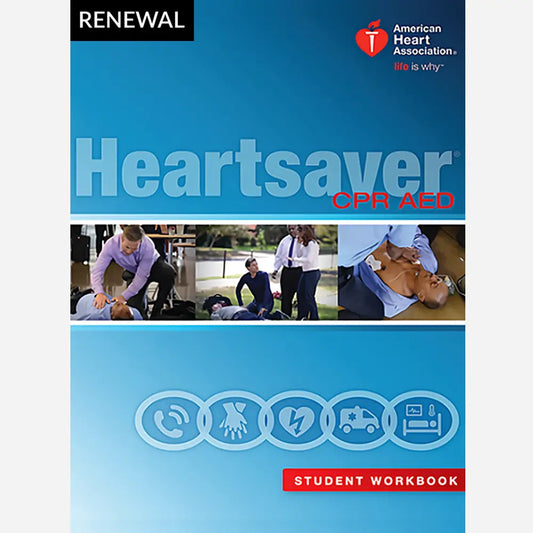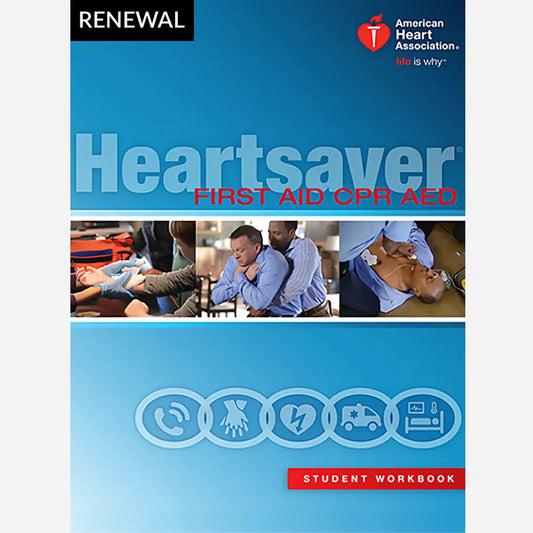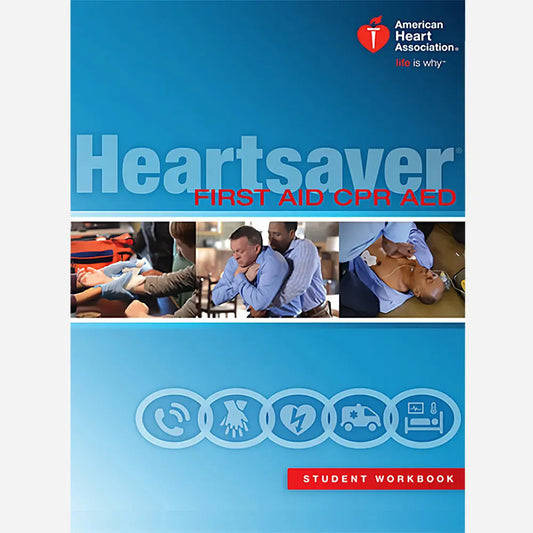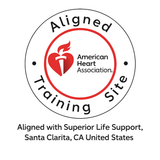Collection: CLASSES AVAILABLE AT PRIME CPR SERVICES
Understanding AHA Classes
The American Heart Association (AHA) provides a range of courses designed for different skill levels and professions. BLS (Basic Life Support) is the foundation for anyone in healthcare, teaching high-quality CPR and AED use. ACLS (Advanced Cardiac Life Support) builds on that by preparing providers to manage adult cardiac emergencies like strokes and heart attacks. PALS (Pediatric Advanced Life Support) focuses on recognizing and treating critical conditions in infants and children. For those outside the medical field, Heartsaver First Aid and Heartsaver CPR AED classes provide essential skills for lay rescuers responding to emergencies at home, work, or in the community. Whether you’re starting out or renewing an advanced certification, there’s an AHA class that fits your needs.
Benefits of AHA Training
AHA courses don’t just teach textbook skills — they prepare you for real emergencies. You’ll gain hands-on practice using CPR manikins, AEDs, and scenario-based training that mirrors actual 911 calls. This approach builds confidence and muscle memory so you’re ready to respond under pressure. Training also offers professional benefits: many employers require valid AHA certification, and completing these classes with Prime CPR Services can strengthen your résumé. Beyond career growth, AHA training helps you feel empowered to act in critical moments — whether that means saving a patient in the hospital or helping a loved one at home.
How to Choose the Right Course
Choosing the right AHA class depends on your role, goals, and responsibilities. If you’re entering the healthcare field, BLS is the first step. Nurses, doctors, paramedics, and other advanced providers often need a NEW ACLS or NEW PALS to stay compliant and capable of handling complex emergencies. If you’re a teacher, coach, or employer, a Heartsaver First Aid and/or Heartsaver CPR AED course may be the best fit to keep your students, staff, or family safe. When deciding, look at the type of certification your workplace or profession requires, and consider your own comfort level with emergency care. Above all, ensure your training is led by AHA-certified instructors with real 911 experience, like they are at Prime CPR Services — that way, what you learn goes far beyond the classroom and prepares you for the moments that matter most.
-

BLS FOR HEALTHCARE PROVIDERS RENEWAL
Regular price $50.00 USDRegular priceUnit price / per -

BLS FOR HEALTHCARE PROVIDERS
Regular price $50.00 USDRegular priceUnit price / per -

CPR AED RENEWAL
Regular price $60.00 USDRegular priceUnit price / per -

CPR AED
Regular price $60.00 USDRegular priceUnit price / per -

FIRST AID RENEWAL
Regular price $60.00 USDRegular priceUnit price / per -

FIRST AID
Regular price $60.00 USDRegular priceUnit price / per -

FIRST AID CPR AED RENEWAL
Regular price $80.00 USDRegular priceUnit price / per -

FIRST AID CPR AED
Regular price $80.00 USDRegular priceUnit price / per -

PALS RENEWAL
Regular price $120.00 USDRegular priceUnit price / per -

ACLS RENEWAL
Regular price $120.00 USDRegular priceUnit price / per -

NEW PALS (1-Day class)
Regular price $150.00 USDRegular priceUnit price / per -

NEW ACLS
Regular price $150.00 USDRegular priceUnit price / per -

ACLS RENEWAL with BLS FOR HEALTHCARE PROVIDERS RENEWAL
Regular price $160.00 USDRegular priceUnit price / per -

PALS RENEWAL with BLS FOR HEALTHCARE PROVIDERS RENEWAL
Regular price $160.00 USDRegular priceUnit price / per -

NEW PALS with BLS FOR HEALTHCARE PROVIDERS RENEWAL
Regular price $200.00 USDRegular priceUnit price / per -

NEW ACLS with BLS FOR HEALTHCARE PROVIDERS RENEWAL
Regular price $200.00 USDRegular priceUnit price / per -

PALS RENEWAL with ACLS RENEWAL
Regular price $220.00 USDRegular priceUnit price / per -

ACLS RENEWAL with PALS RENEWAL
Regular price $220.00 USDRegular priceUnit price / per -

PALS RENEWAL, ACLS RENEWAL with BLS FOR HEALTHCARE PROVIDERS RENEWAL
Regular price $270.00 USDRegular priceUnit price / per -

ACLS RENEWAL, PALS RENEWAL with BLS FOR HEALTHCARE PROVIDERS RENEWAL
Regular price $270.00 USDRegular priceUnit price / per





















